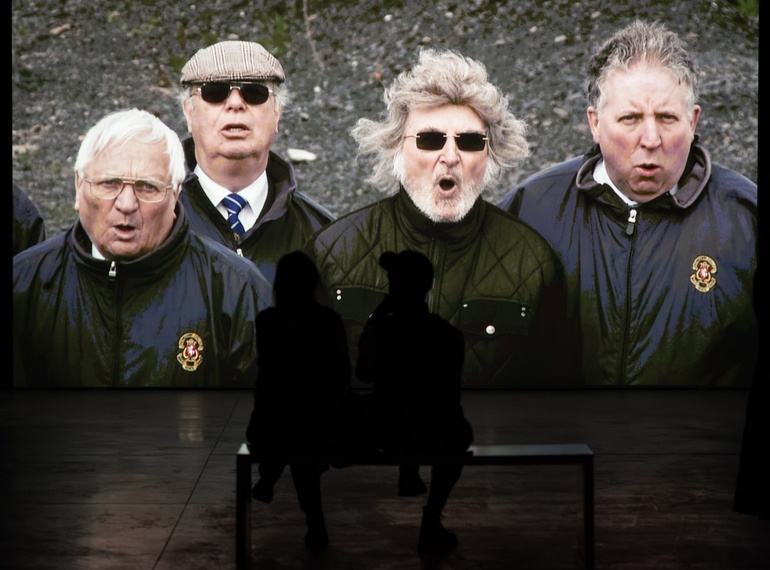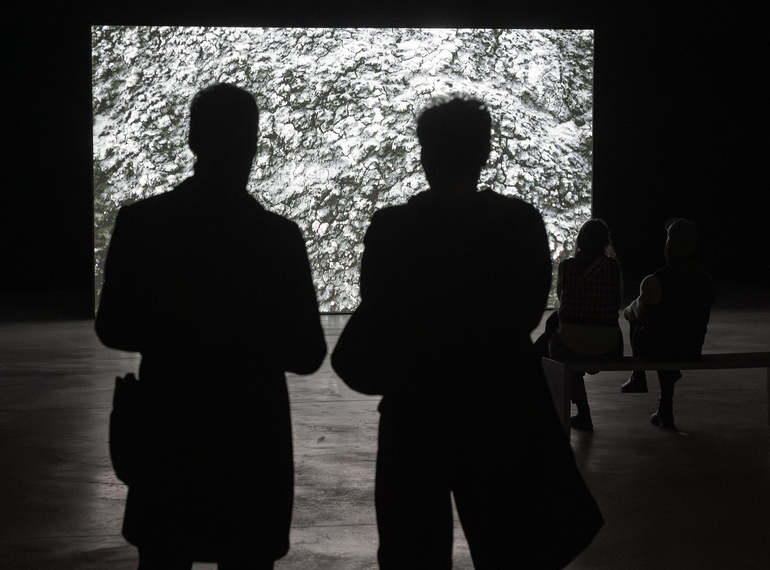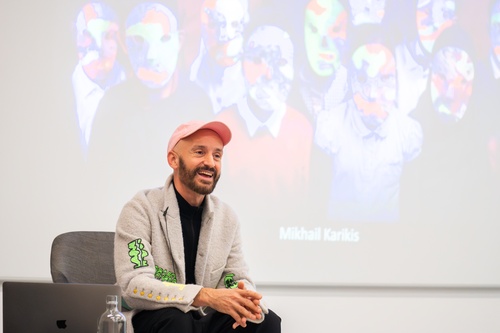Mikhail Karikis
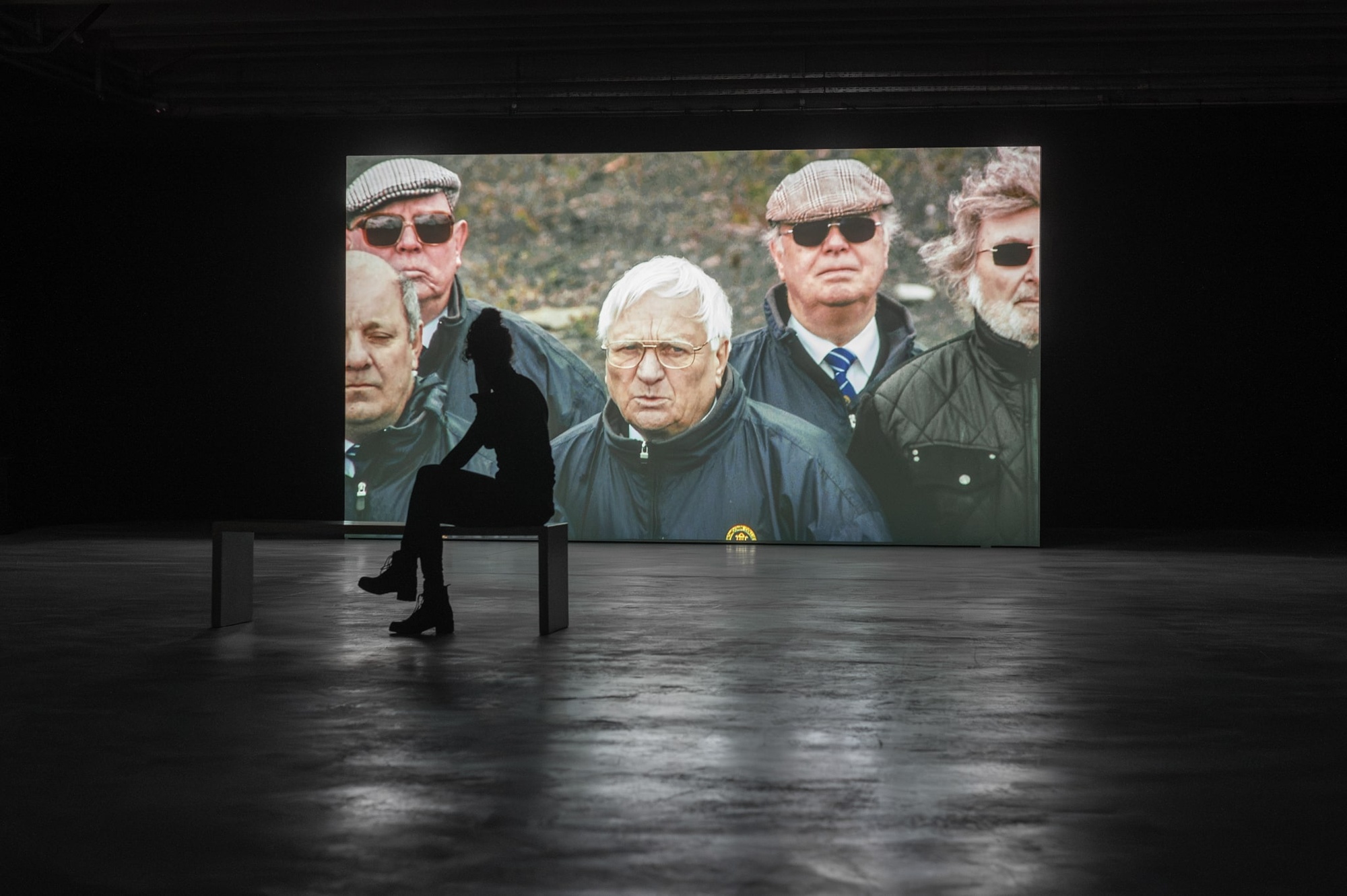
In the selected video works, Mikhail Karikis observes the relationship between humans and the environment though the consequences of deindustrialisation and its societal legacies.
A programme of video and film works is being launched in Cukrarna's basement gallery space, with an exhibition by Greek/British artist Mikhail Karikis, based between Lisbon and London, as the first in the cycle.
In the selected video works, the artist observes the relationship between humans and the environment though the consequences of deindustrialisation and its societal legacies. He examines the connections between the positive and negative consequences of industrialisation, opens up debates about the urgency of dealing with our common heritage and offers means to reflect on the impact of traditional ways of life as possible models in considering a different future. His video, sound and performance works are based on collaboration with individuals and various local communities, with whom he interprets his chosen themes from the past in a two-way dialogue. Through long-term study and research into the features of the local area, traditions and the personal experiences of participants, he captures the diverse stories of places and the people who are inevitably connected to them. With the considered selection of locations and community-engaged creative process the consistently well-thought-out scenes, the precise editing of the surrounding details into an overall narrative and the carefully directed performances of the individual participants, the video works of Karikis are at once a tribute to the past and a critique of it. By creating a seamless balance between the visual notation and sound, a key element for the artist in his artwork, and the sometimes abstracted spaces and settings of the action, Karikis allows the viewer to step back from the themes depicted and encourages them to reflect on the pressing issues of the contemporary times.
For the duration of the exhibition, five video works will be shown, arranged in three periods, with each presentation carried out in accord with the chosen theme of the works.
Curated by Alenka Gregorič
Opening hours
Tuesday to Sunday: 10.00–19.00
Tickets
Adults: 3 €
Students, retirees, visitors with disabilities: 2 €
Family ticket: 8 €
Admission free: children 7 and under, ICOM, PRESS
The ticket for the exhibition Communities, Voices, Ecologies includes multiple entries to the basement space of Cukrarna and is valid for viewing all three parts of the exhibition.
Press kit
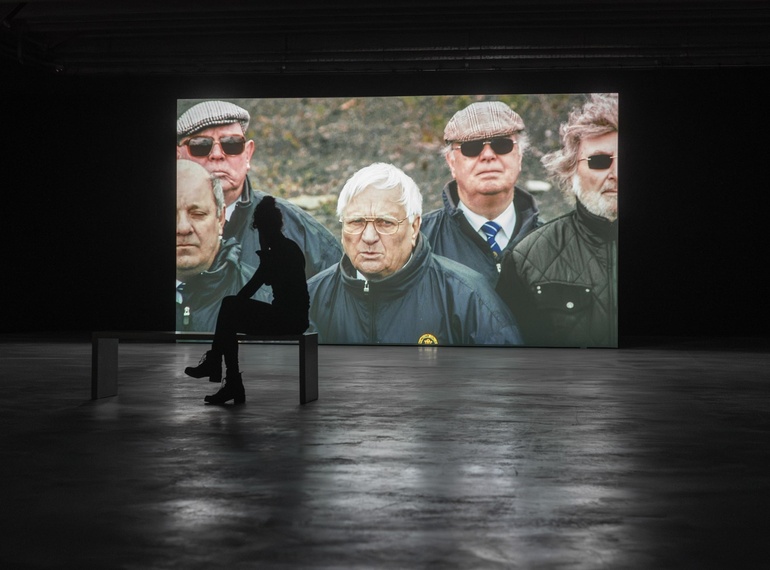
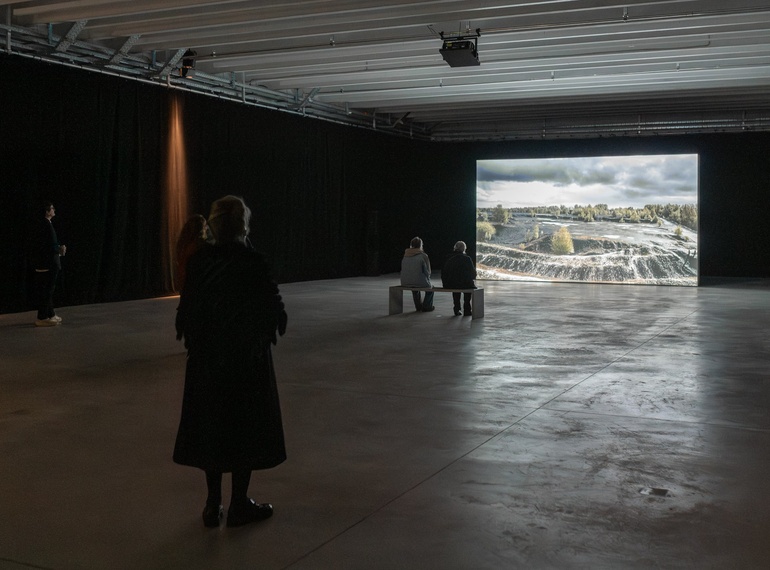
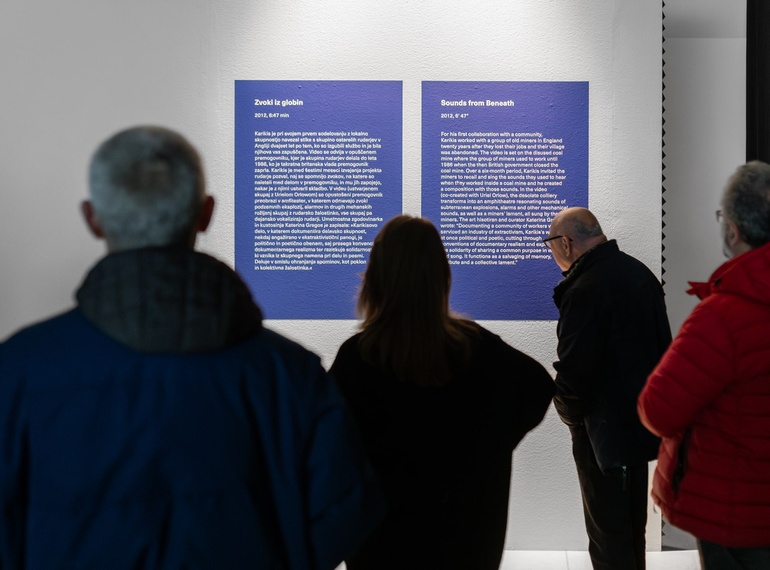
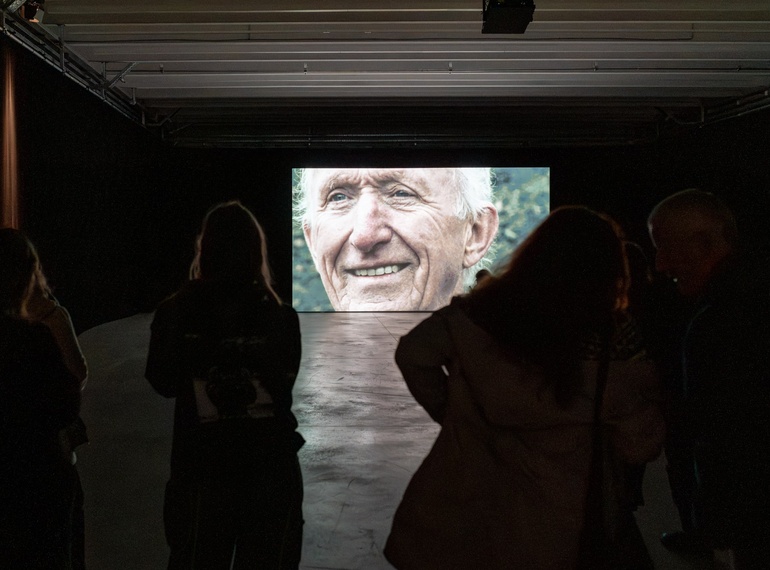
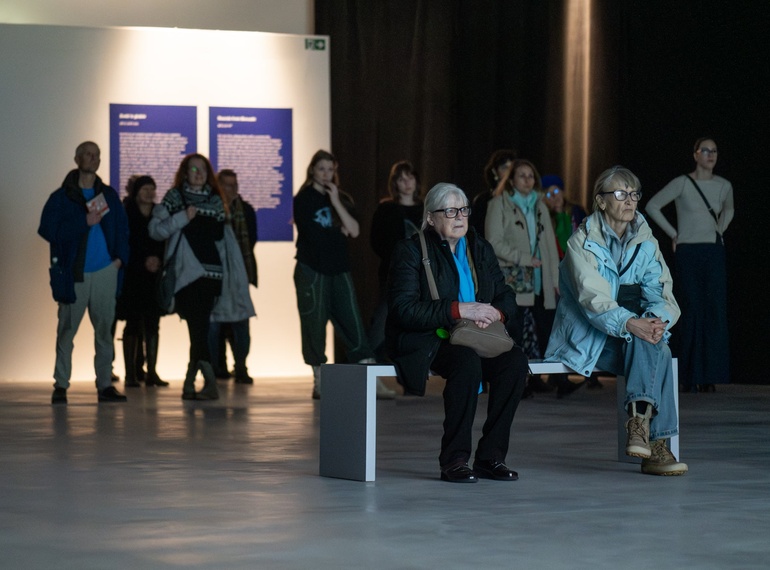
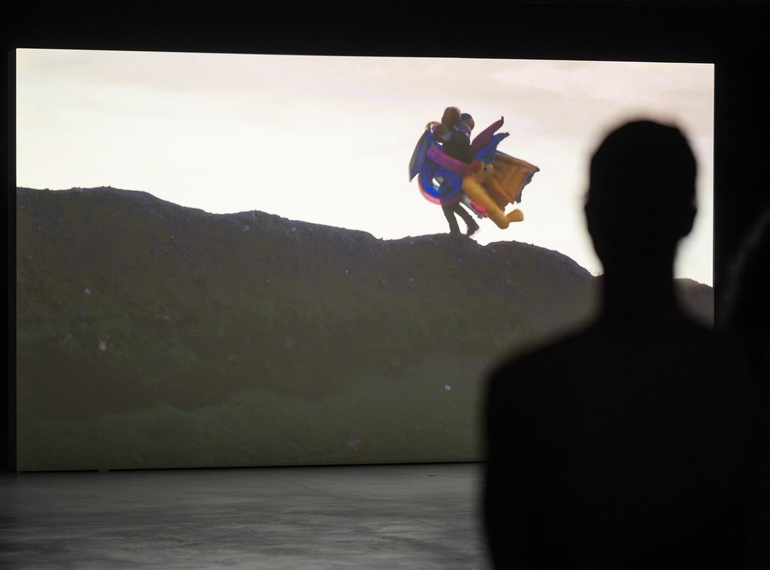
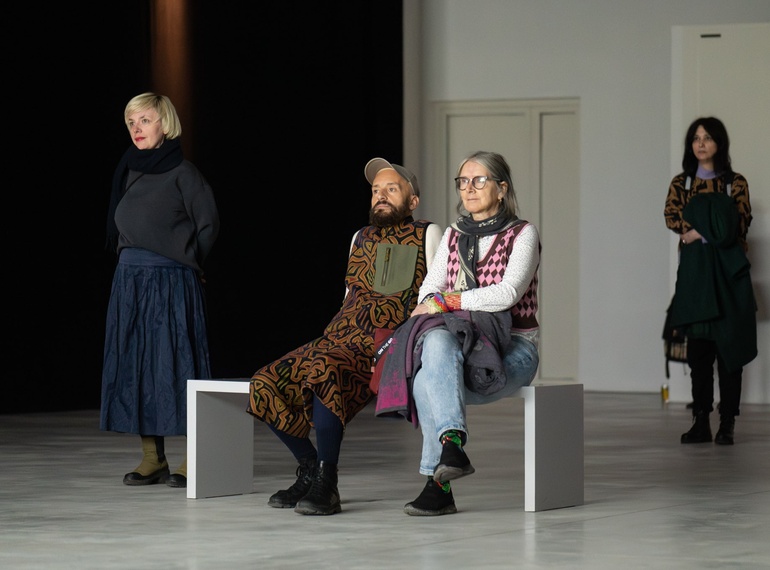
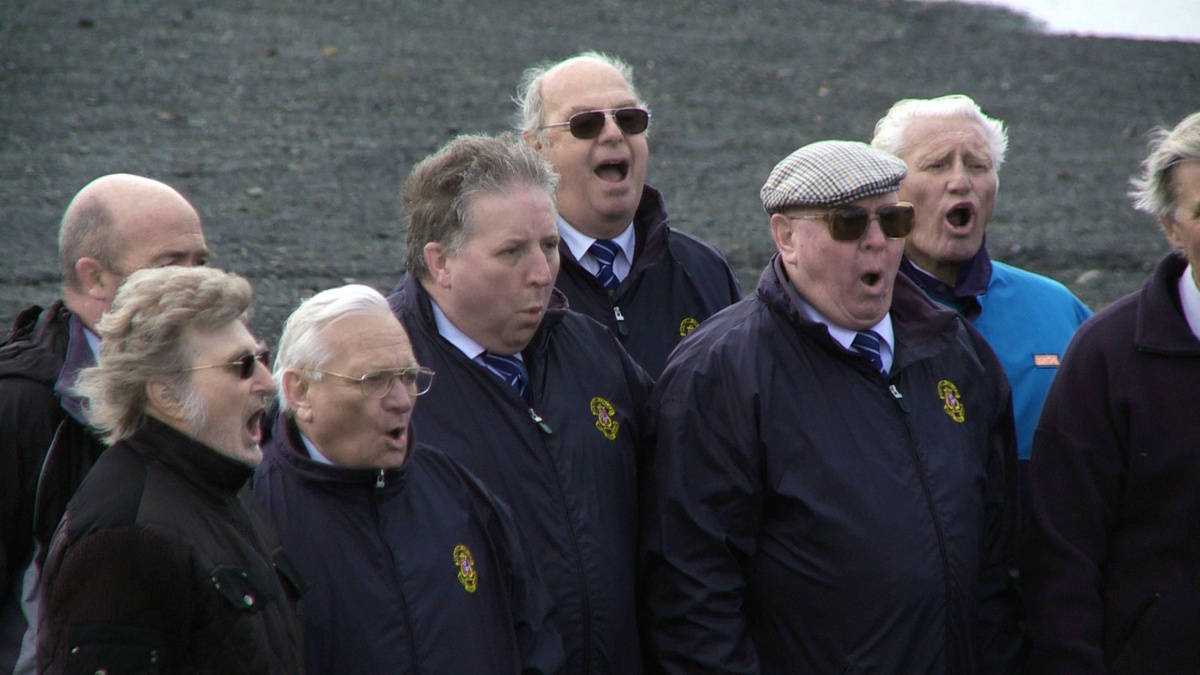
The first work to be shown is the video sound piece Sounds from Beneath (2012), whose protagonists are a male choir of retired miners who have gathered on the site of the disused mine where they used to wotk and are vocalising the industrial sounds of their former workplace from memory. As a kind of ode to their labour and professional hardship, the lyrical imagery is a tribute to a bygone profession and working class identity, and a reminder of a time when the social image of many English towns was radically changed by the rapid closure of many coal mines in the 1980s.
Sounds from Beneath will be on display from February 6th to February 25th, 2024.
In the second time slot, we take a close look at three works by Karikis in which young people spotlight the link between post-industrial heritage and ecology. In recent years, the artist has increasingly worked with children and young people to put the power of action in the hands of future generations and encourage them to reflect on their role as socially responsible and politicised citizens in the making. By highlighting their messages and conveying them as artistic statements, he emphasises that it is possible to influence important social decisions through collective action and active participation. All three works – Children of Unquiet (2014), Ain't Got No Fear (2016) and No Ordinary Protest (2018) – share the common motif of protest in their demands to confront the consequences of the past and find answers and sustainable solutions to the challenges of the future.
The Youth Trilogy will be on display from February 27th to March 17th, 2024.
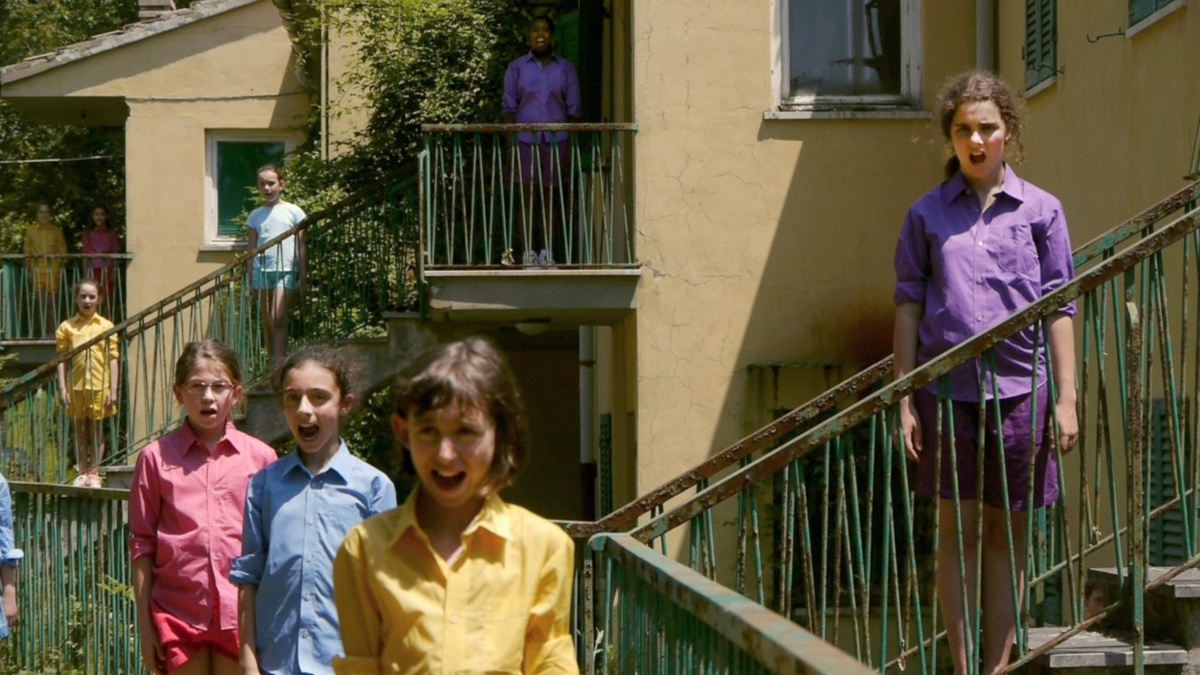
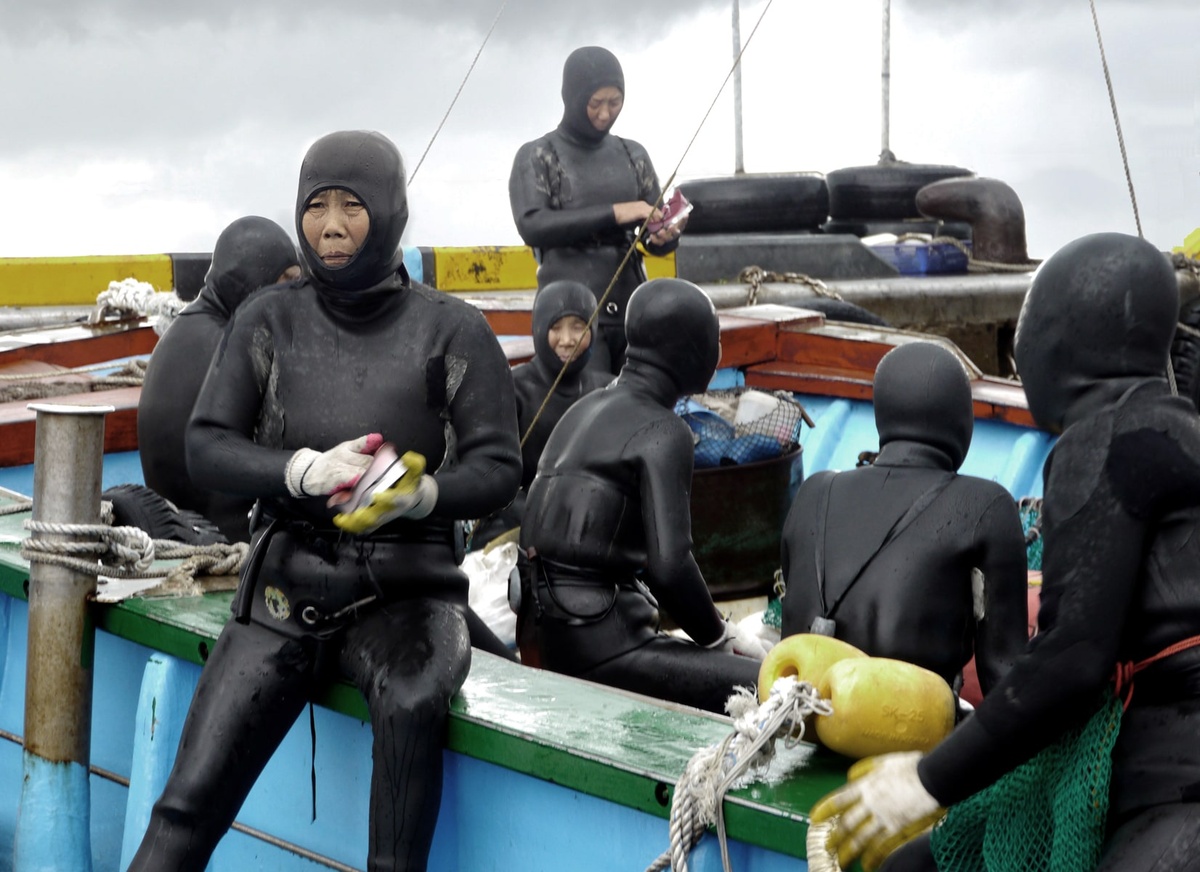
The presentation concludes with SeaWomen (2013), in which the preservation of a traditional profession can also be read as an optimistic prediction of an ecologically conscious future. On the South Korean island of Jeju, octogenarian women descend into the great depths up to eighty times a day to find pearls and collect sea-food. This fast-disappearing ancient profession, which became the island's dominant industry in the 1970s, but is dramatically affected by climate change and ocean pollution, is an ecofeminist example of a reversal of traditional family roles and the overcoming of the entrenched traditions of the industrial age.
SeaWomen will be on display from March 19th to April 4th, 2024.
